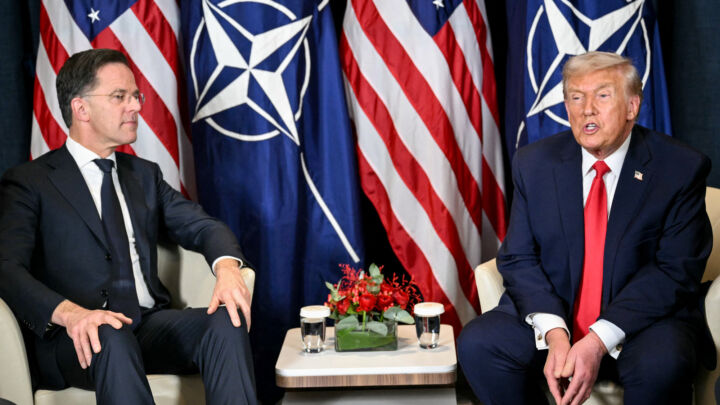The Mannheim stabbings are being memory-holed
The German establishment is desperate to obscure the Islamist motive behind this terrible tragedy.

Want unlimited, ad-free access? Become a spiked supporter.
A year after the deadly Islamist terrorist attack in the German city of Mannheim, the debate over what lessons to draw from it remains bitterly contested. Even the question of how to commemorate the attack, in which a police officer was killed and several members of the public seriously injured, has been anything but straightforward.
On one side stands the German establishment. It has been determined to shape both the memory of the attack and the public conversation around it within narrow, politically palatable limits. On the other side are those who argue that radical Islam represents one of the most urgent threats facing Germany today – and that the authorities’ refusal to acknowledge this reality is both dangerous and dishonest.
The depth of this divide was made painfully clear on 31 May, the first anniversary of the attack. A commemoration for the slain officer, Rouven Laur, was held by government representatives, police and Mannheim’s mayor. Germany’s president, Frank-Walter Steinmeier, issued a solemn statement: ‘We will never forget Rouven Laur. He wanted to protect others – and had to pay with his life for this.’ Mannheim’s mayor, Christian Specht, used the occasion to celebrate the city’s diversity, insisting that ‘good and evil are not a question of skin colour or religion’. According to the press, the ceremony concluded with an inter-religious service involving local Christian, Muslim and Jewish communities.
Predictably, no such deference was paid to diversity of opinion. In fact, anyone who might have drawn attention to the Islamist nature of the attack was explicitly excluded. Pax Europa – the anti-Islam group the suspect, an Afghan asylum seeker, allegedly targeted – was not merely unwelcome at the official commemoration. Incredibly, its supporters were actively prevented from holding a vigil of their own in Mannheim, too.
The police union’s statement on the banned vigil was all too telling. The anniversary ‘is a day of silent mourning and dignified remembrance of our colleague, Rouven Laur, who was killed in the line of duty’, it said. ‘The fact that a group such as Pax Europa is organising its own vigil… is something we consider to be irreverent and a politically motivated instrumentalisation of a tragic event.’
This reaction reveals a desperate desire to depoliticise the attack, to pretend it was simply a random tragedy, rather than one episode in a growing pattern of Islamist violence in Germany. But this denialism cannot last. The more the German establishment insists that acknowledging Islamist extremism is somehow wrong, or only fuels the far right, the more out of step it becomes with the public.
Pax Europa is a small activist group. It is often provocative, and it is unapologetically critical of Islam’s role in public life. It wants Islamic practices like the call to prayer banned from German cities. It campaigns against the construction of mosques and against Islamic veils. These are clearly illiberal positions that deserve criticism.
But to dismiss Pax Europa as mere far-right agitators would be to miss the point. Its activism resonates with a growing number of Germans because it voices concerns many share about Islamism, mass migration and the failure to integrate large numbers of newcomers.
Yet rather than address the public’s fears, the German state would prefer to try to shut up anyone who tries to voice them. And so Pax Europa has now become a target for state censorship. Just months after the Mannheim attack, Michael Stürzenberger – the group’s leader who was seriously wounded in the stabbing – was dragged into court over a speech he had given five years earlier. He faced a six-month prison sentence under Germany’s notorious ‘incitement’ law. That sentence was eventually commuted to a €3,600 fine, partly in light of the injuries he suffered. Still, the message from the state was unmistakable: speak out against Islamism, and you’ll be punished.
Ironically, had it not been for the Mannheim attack and the hate-speech trial, Pax Europa would have likely remained on the fringes. It would be little more than one of the many groups that were associated with the far-right Pegida movement, which held its largest rally in 2015 in Dresden, but has made little impact since.
Now, however, many of Pax Europa’s warnings about Islamist extremism no longer seem so outlandish or radical to many Germans. Especially when the state is prepared to sit on its hands in the face of growing violence.
When asked what lessons should be drawn from Mannheim, one Pax Europa spokesperson put it to me bluntly:
‘The lesson for politicians and society should be to recognise an obvious pattern: most perpetrators come from fundamentally Islamic states where Sharia prevails. Their socialisation is fundamentally different from that of people living in Germany. The state should have protected its citizens – these people should never have been allowed to come here.’
Whatever one thinks of such views, the German state’s approach to them is illiberal and wrong. The attempt to marginalise and censor groups like Pax Europa is a serious assault on free speech. The aim is not to preserve democracy, as the elites claim, but to protect those in power from public anger towards their policies. It’s an attempt to shield the establishment’s sacred cows, like diversity and multiculturalism, from scrutiny. It is built on the condescending belief that ordinary people can’t distinguish between a principled critique of Islamism and blind hatred of Muslims.
This vilification of radical Islam’s critics must stop. If groups like Pax Europa are gaining support, it’s not because the public is bigoted, it is because it is seeing a danger that the establishment refuses to acknowledge.
Sabine Beppler-Spahl is spiked’s Germany correspondent.
£1 a month for 3 months
You’ve hit your monthly free article limit.
Support spiked and get unlimited access.
Support spiked – £1 a month for 3 months
spiked is funded by readers like you. Only 0.1% of regular readers currently support us. If just 1% did, we could grow our team and step up the fight for free speech and democracy.
Become a spiked supporter and enjoy unlimited, ad-free access, bonus content and exclusive events – while helping to keep independent journalism alive.
———————————————————————————————————————————–
Exclusive January offer: join today for £1 a month for 3 months. Then £5 a month, cancel anytime.
———————————————————————————————————————————–
Monthly support makes the biggest difference. Thank you.









Comments
Want to join the conversation?
Only spiked supporters and patrons, who donate regularly to us, can comment on our articles.